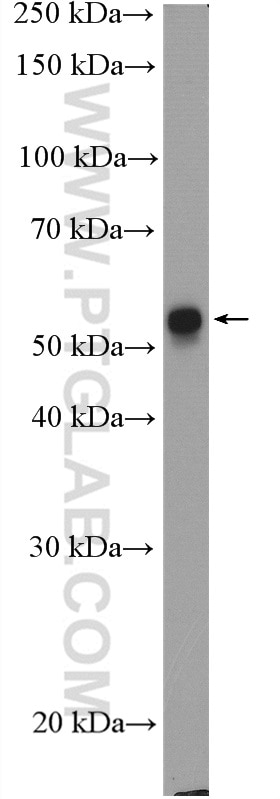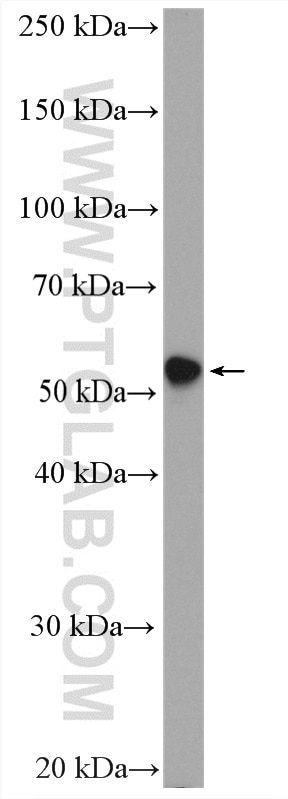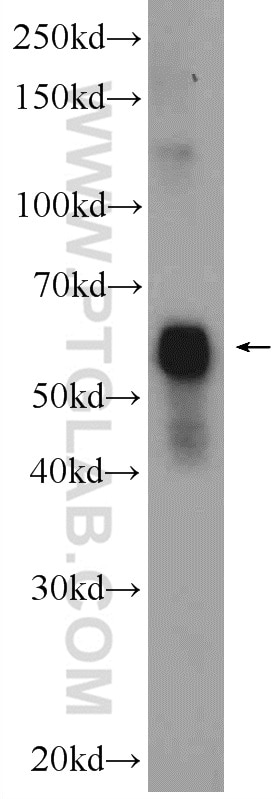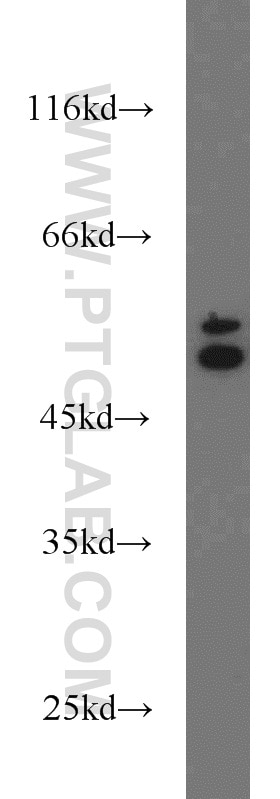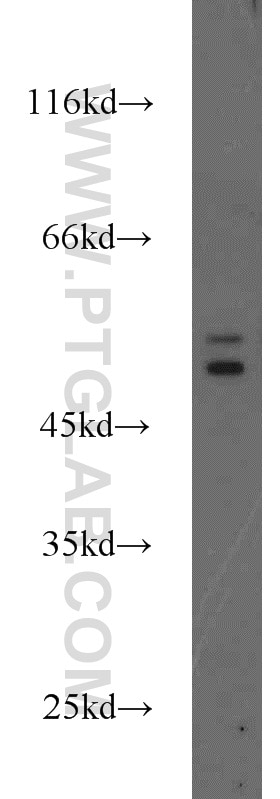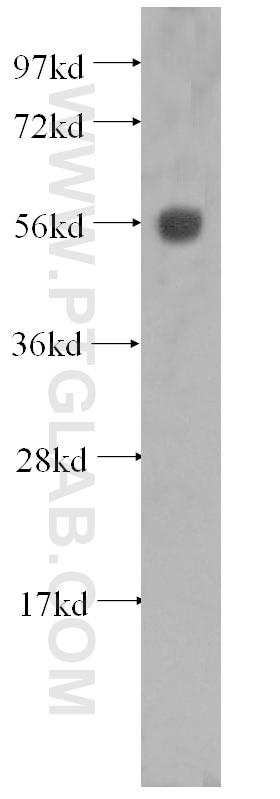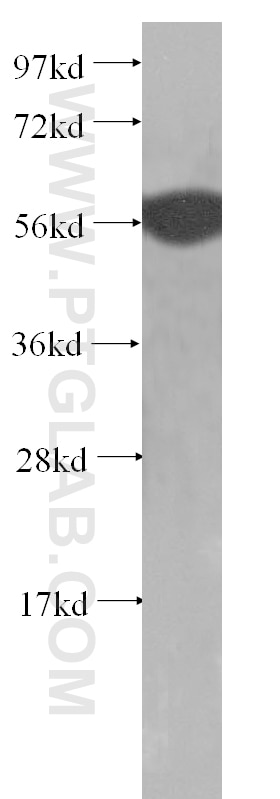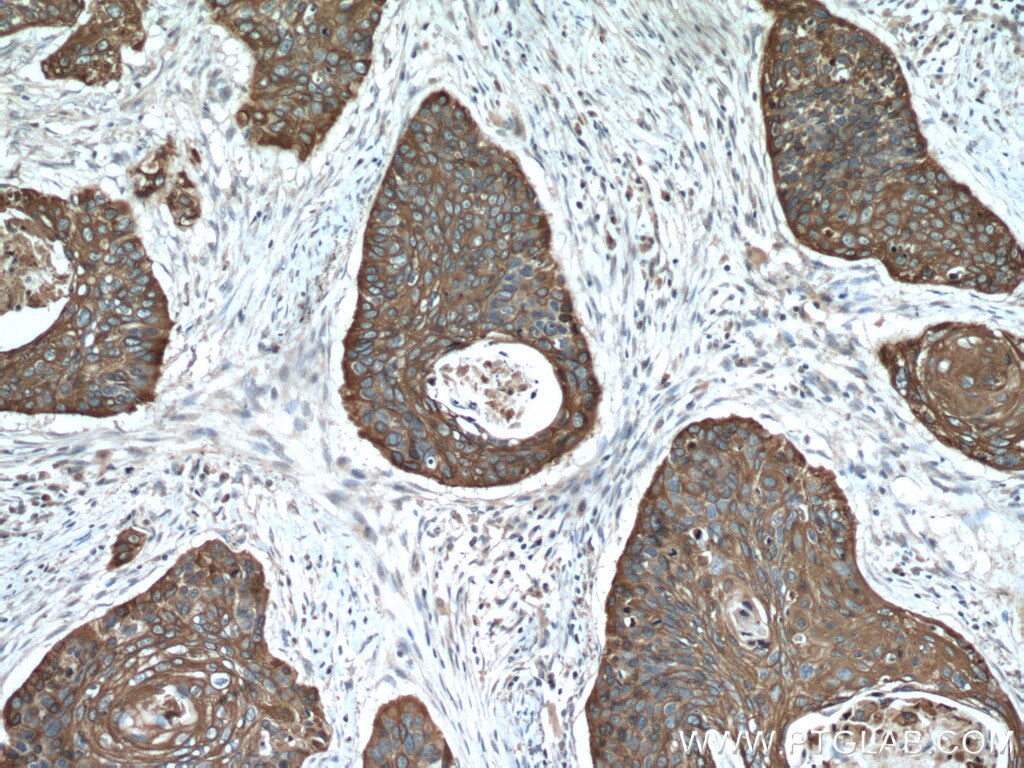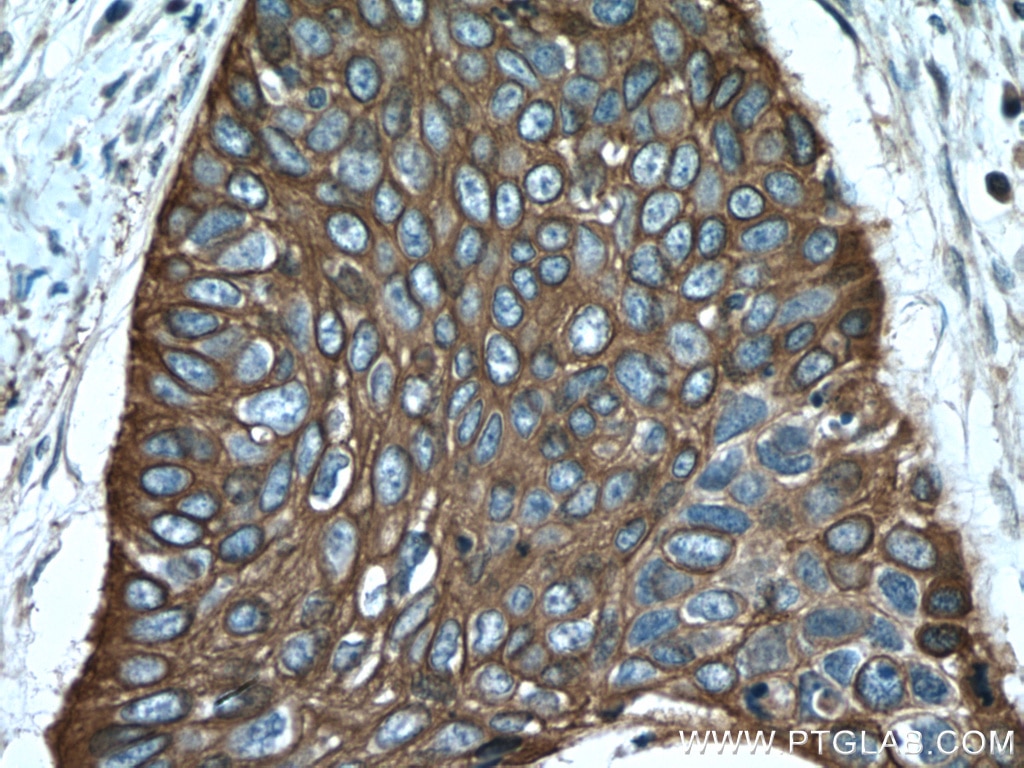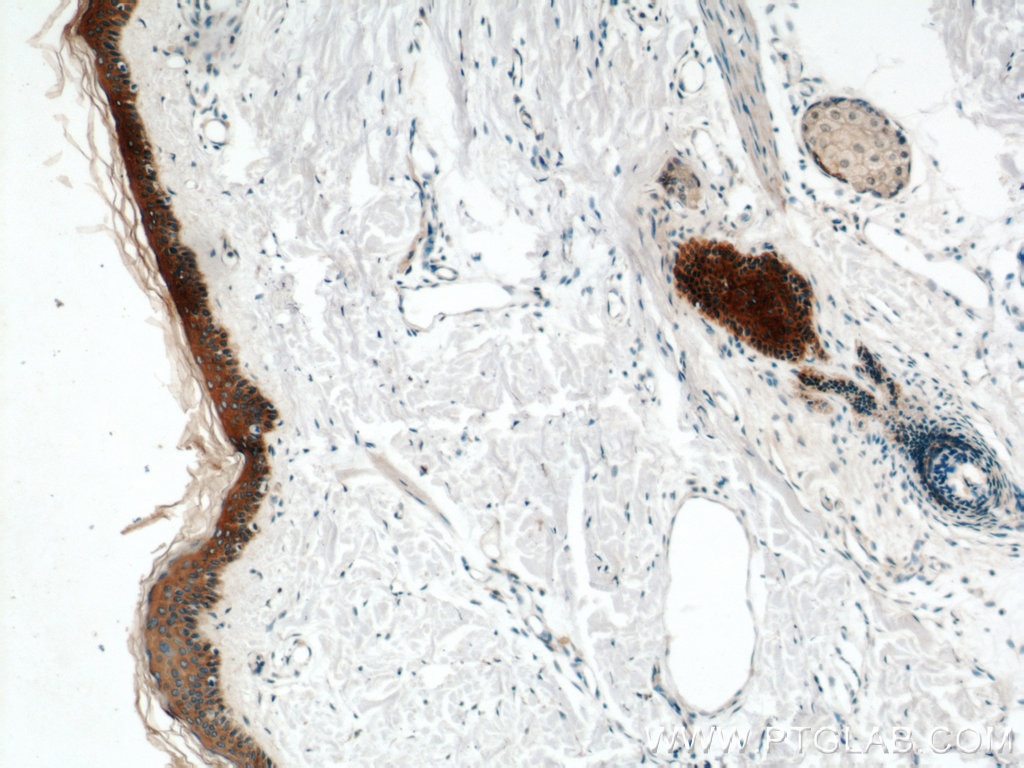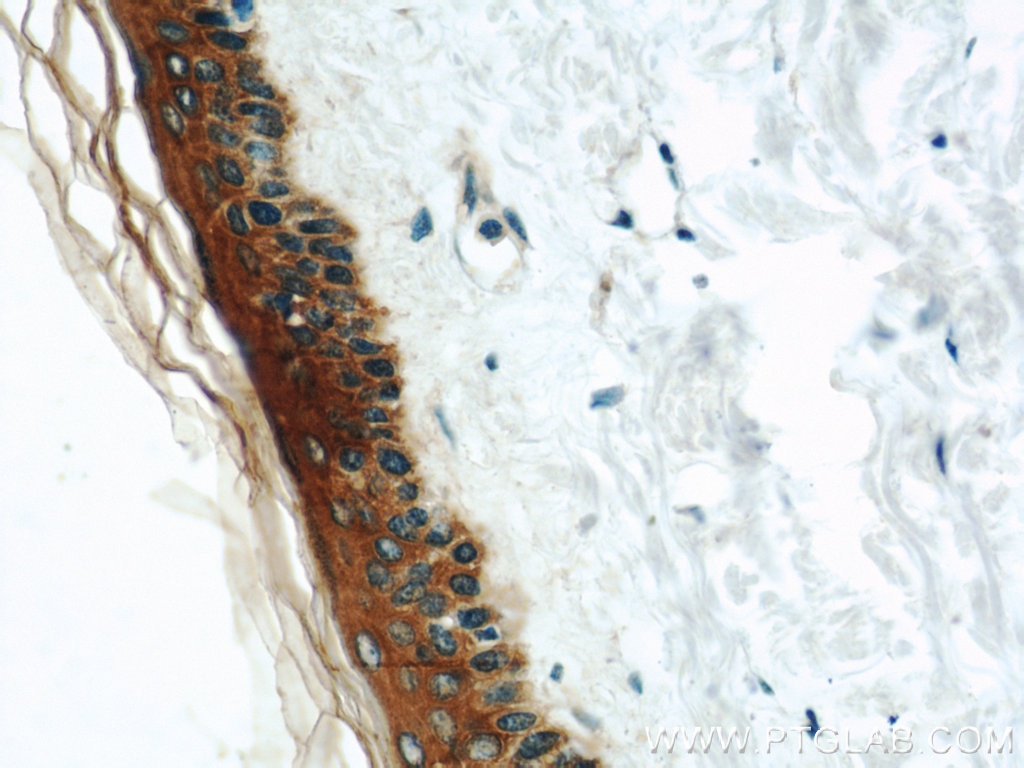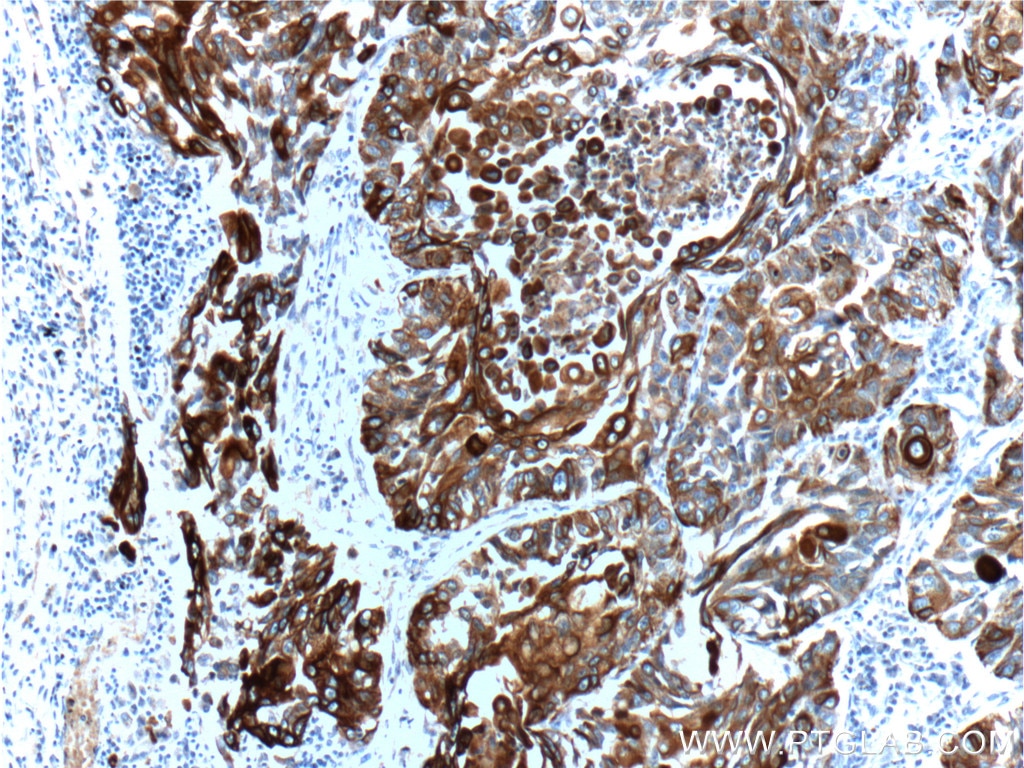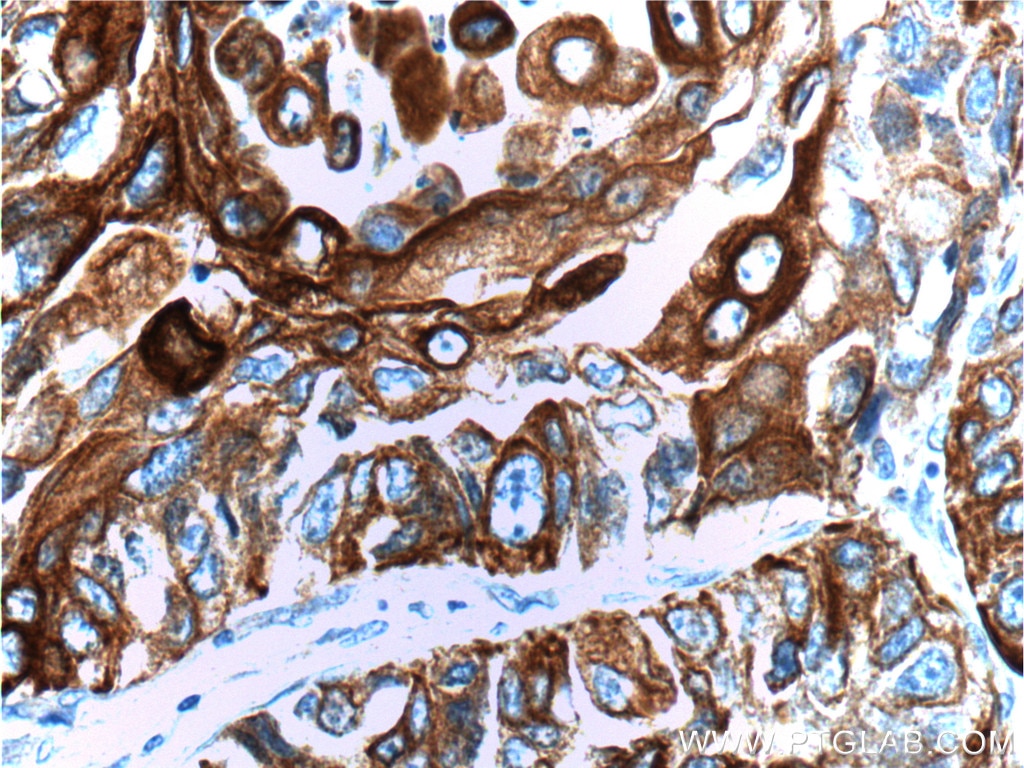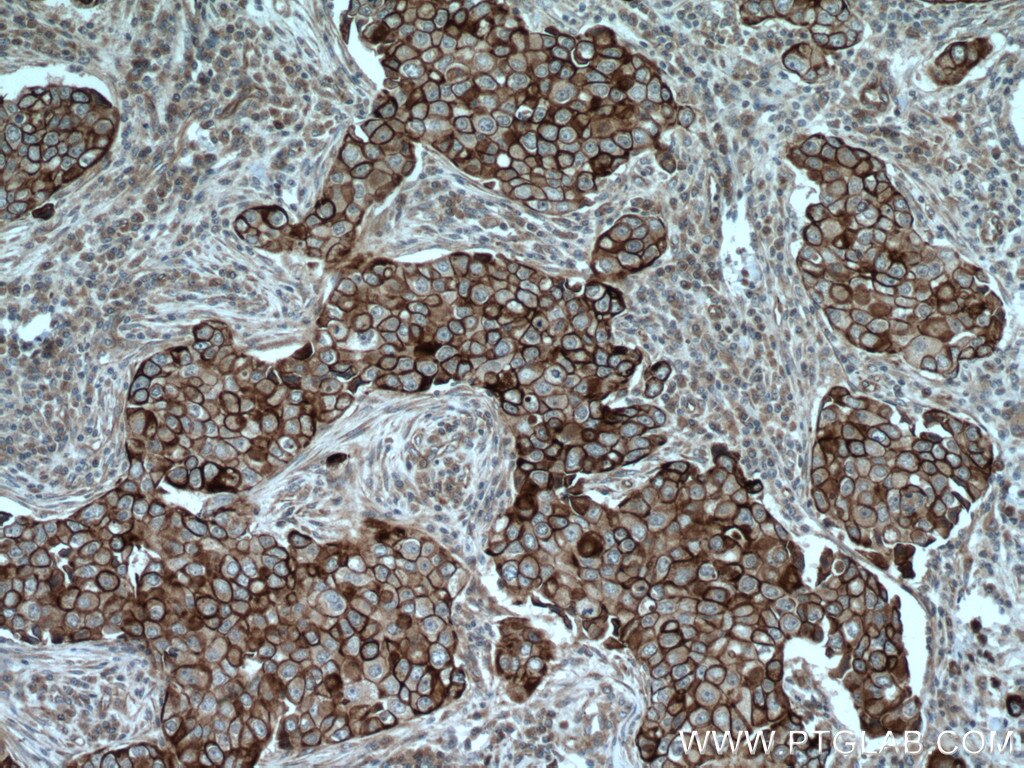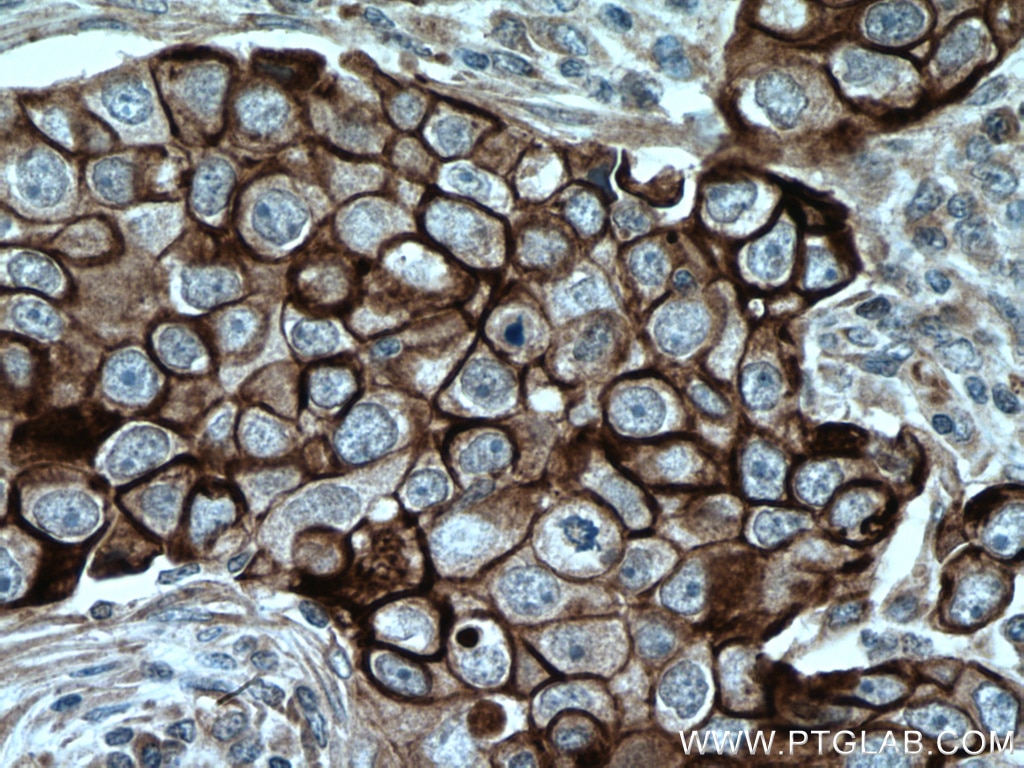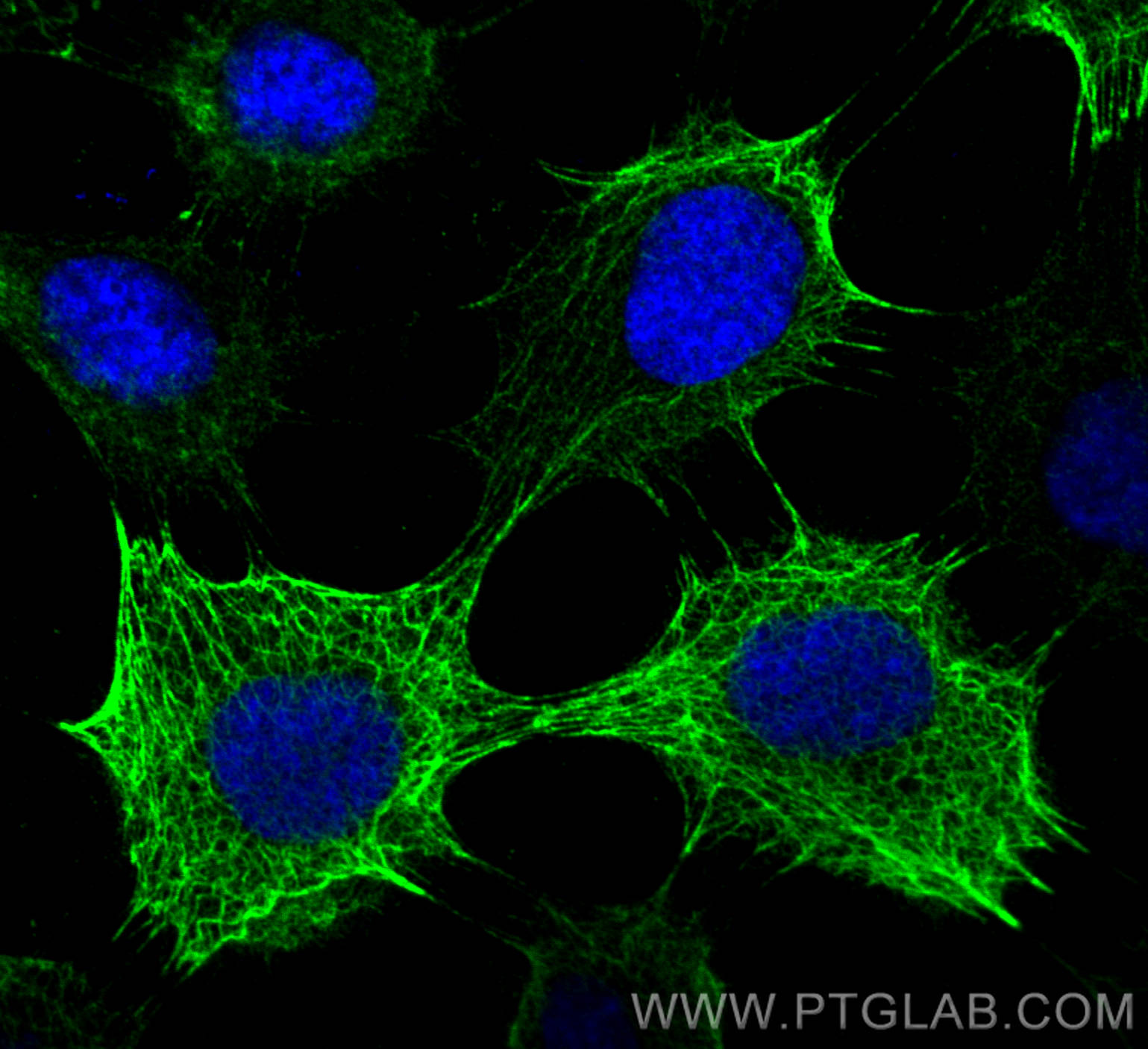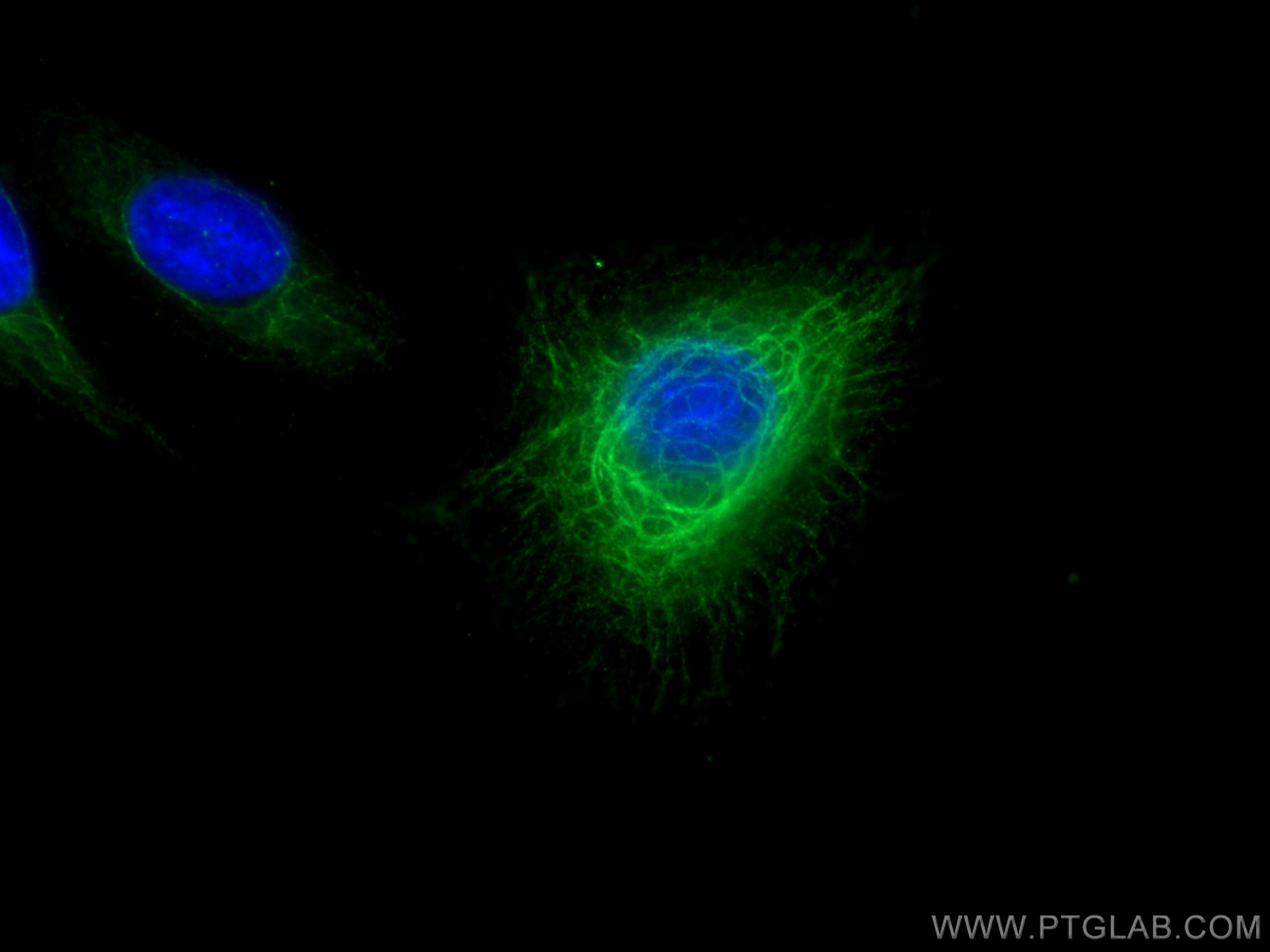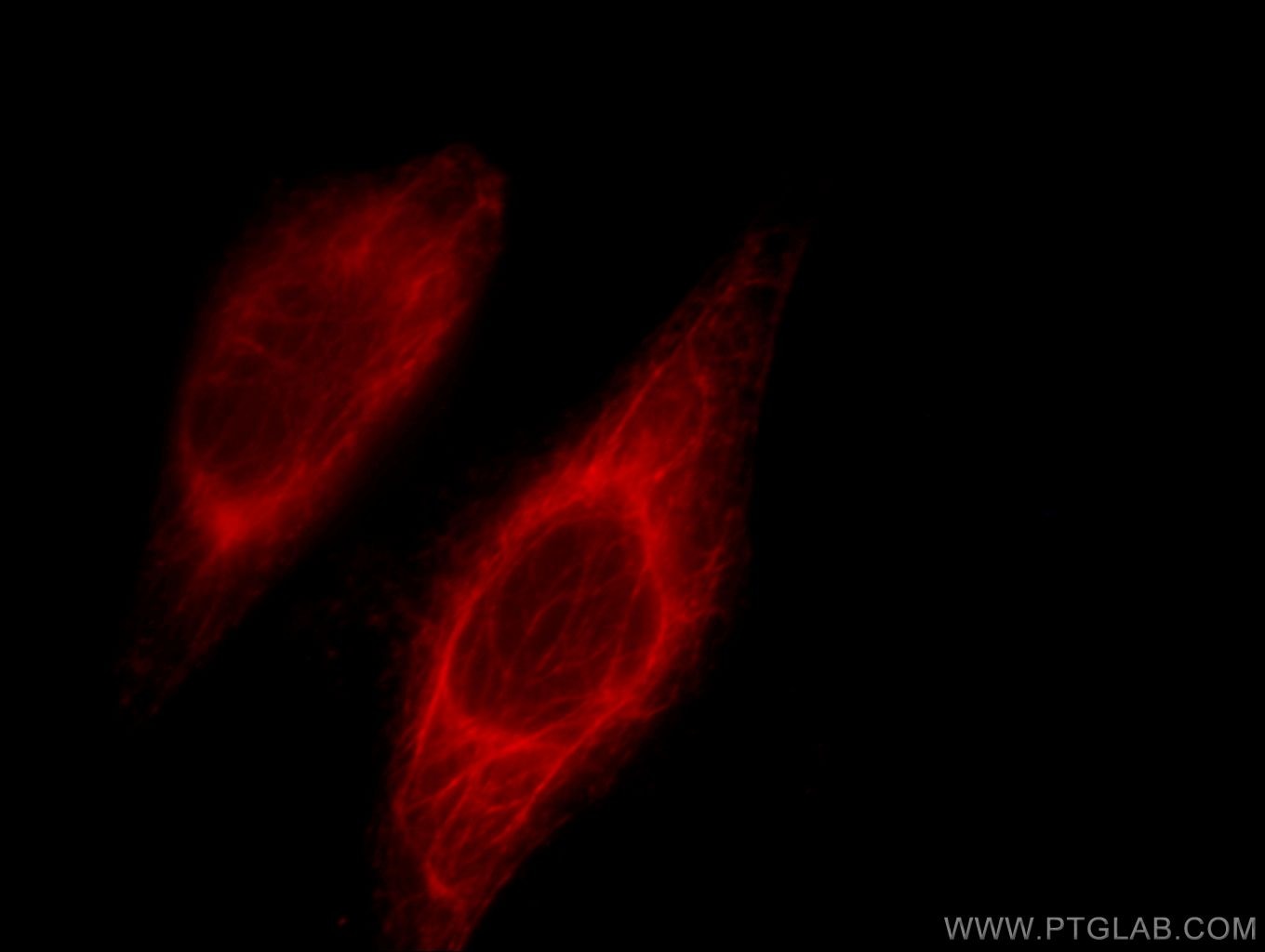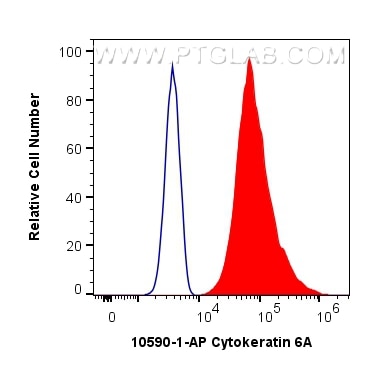Validation Data Gallery
Tested Applications
| Positive WB detected in | A431 cells, MCF-7 cells, HeLa cells, A375 cells, rat skin tissue, U-251 cells |
| Positive IHC detected in | human oesophagus cancer tissue, human breast cancer tissue, human skin tissue, human lung cancer tissue Note: suggested antigen retrieval with TE buffer pH 9.0; (*) Alternatively, antigen retrieval may be performed with citrate buffer pH 6.0 |
| Positive IF/ICC detected in | A431 cells, HeLa cells |
| Positive FC (Intra) detected in | A431 cells |
Recommended dilution
| Application | Dilution |
|---|---|
| Western Blot (WB) | WB : 1:10000-1:50000 |
| Immunohistochemistry (IHC) | IHC : 1:200-1:800 |
| Immunofluorescence (IF)/ICC | IF/ICC : 1:50-1:500 |
| Flow Cytometry (FC) (INTRA) | FC (INTRA) : 0.40 ug per 10^6 cells in a 100 µl suspension |
| It is recommended that this reagent should be titrated in each testing system to obtain optimal results. | |
| Sample-dependent, Check data in validation data gallery. | |
Published Applications
| KD/KO | See 1 publications below |
| WB | See 13 publications below |
| IHC | See 12 publications below |
| IF | See 13 publications below |
Product Information
10590-1-AP targets Cytokeratin 6A in WB, IHC, IF/ICC, FC (Intra), ELISA applications and shows reactivity with human, rat samples.
| Tested Reactivity | human, rat |
| Cited Reactivity | human, mouse, rat |
| Host / Isotype | Rabbit / IgG |
| Class | Polyclonal |
| Type | Antibody |
| Immunogen |
CatNo: Ag0882 Product name: Recombinant human KRT6A protein Source: e coli.-derived, PGEX-4T Tag: GST Domain: 364-564 aa of BC008807 Sequence: QVTAGRHGDDLRNTKQEIAEINRMIQRLRSEIDHVKKQCANLQAAIADAEQRGEMALKDAKNKLEGLEDALQKAKQDLARLLKEYQELMNVKLALDVEIATYRKLLEGEECRLNGEGVGQVNISVVQSTVSSGYGGASGVGSGLGLGGGSSYSYGSGLGVGGGFSSSSGRAIGGGLSSVGGGSSTIKYTTTSSSSRKSYKH 相同性解析による交差性が予測される生物種 |
| Full Name | keratin 6A |
| Calculated molecular weight | 60 kDa |
| Observed molecular weight | 56 kDa |
| GenBank accession number | BC008807 |
| Gene Symbol | Cytokeratin 6A |
| Gene ID (NCBI) | 3853 |
| RRID | AB_2134306 |
| Conjugate | Unconjugated |
| Form | |
| Form | Liquid |
| Purification Method | Antigen affinity purification |
| UNIPROT ID | P02538 |
| Storage Buffer | PBS with 0.02% sodium azide and 50% glycerol{{ptg:BufferTemp}}7.3 |
| Storage Conditions | Store at -20°C. Stable for one year after shipment. Aliquoting is unnecessary for -20oC storage. |
Background Information
Keratins are a large family of proteins that form the intermediate filament cytoskeleton of epithelial cells, which are classified into two major sequence types. Type I keratins are a group of acidic intermediate filament proteins, including K9-K23, and the hair keratins Ha1-Ha8. Type II keratins are the basic or neutral courterparts to the acidic type I keratins, including K1-K8, and the hair keratins, Hb1-Hb6. Keratin 6 is a type II keratin. It is used as marker for epidermal hyperproliferation and differentiation. Three are three keratin 6 isoforms: ketatin 6A,6B and 6C. They share more than 99% identical DNA sequence.
Protocols
| Product Specific Protocols | |
|---|---|
| IF protocol for Cytokeratin 6A antibody 10590-1-AP | Download protocol |
| IHC protocol for Cytokeratin 6A antibody 10590-1-AP | Download protocol |
| WB protocol for Cytokeratin 6A antibody 10590-1-AP | Download protocol |
| Standard Protocols | |
|---|---|
| Click here to view our Standard Protocols |
Publications
| Species | Application | Title |
|---|---|---|
Cancer Cell KMT2C deficiency drives transdifferentiation of double-negative prostate cancer and confer resistance to AR-targeted therapy | ||
Immunity Excessive Polyamine Generation in Keratinocytes Promotes Self-RNA Sensing by Dendritic Cells in Psoriasis. | ||
Cell Rep Collagen 1-mediated CXCL1 secretion in tumor cells activates fibroblasts to promote radioresistance of esophageal cancer | ||
Phytother Res Epigallocatechin-3-gallate promotes wound healing response in diabetic mice by activating keratinocytes and promoting re-epithelialization | ||
J Cell Mol Med Ozone therapy promotes the differentiation of basal keratinocytes via increasing Tp63-mediated transcription of KRT10 to improve psoriasis. |

